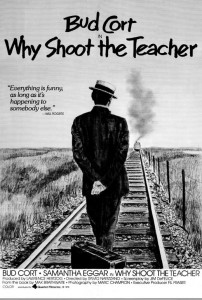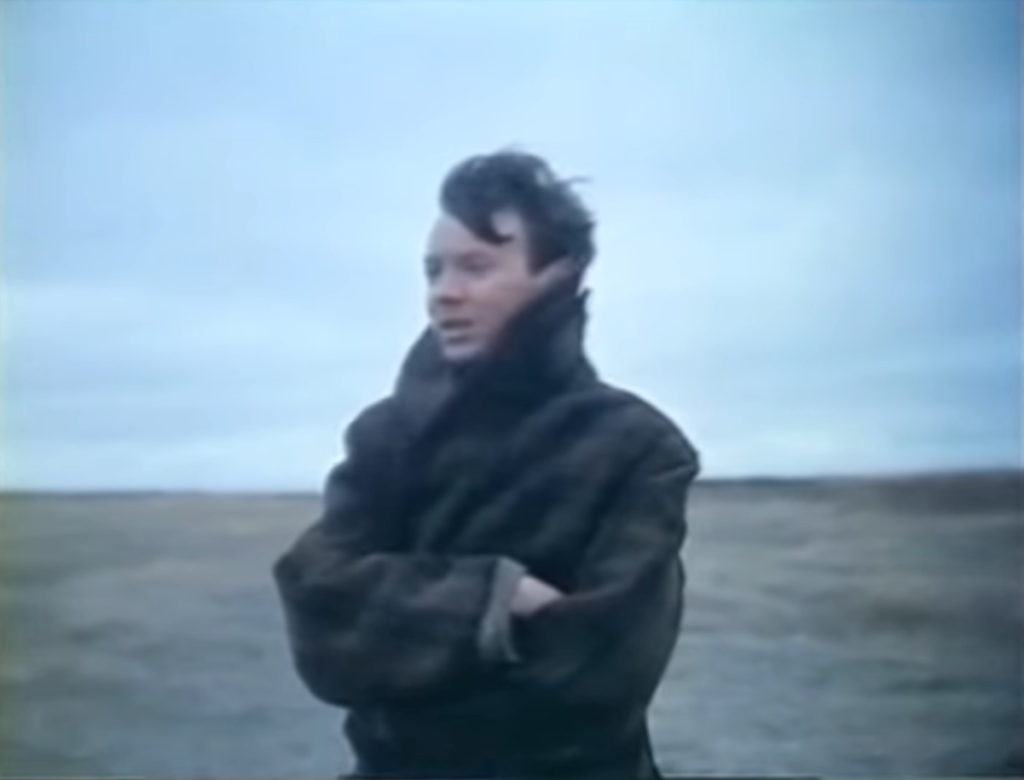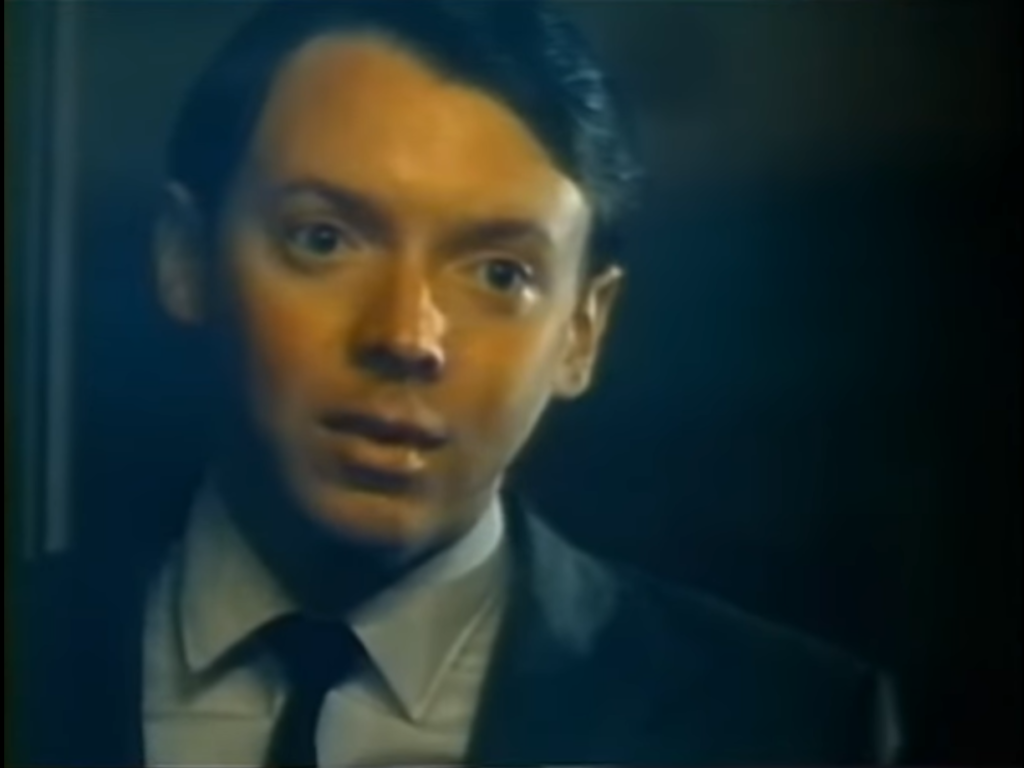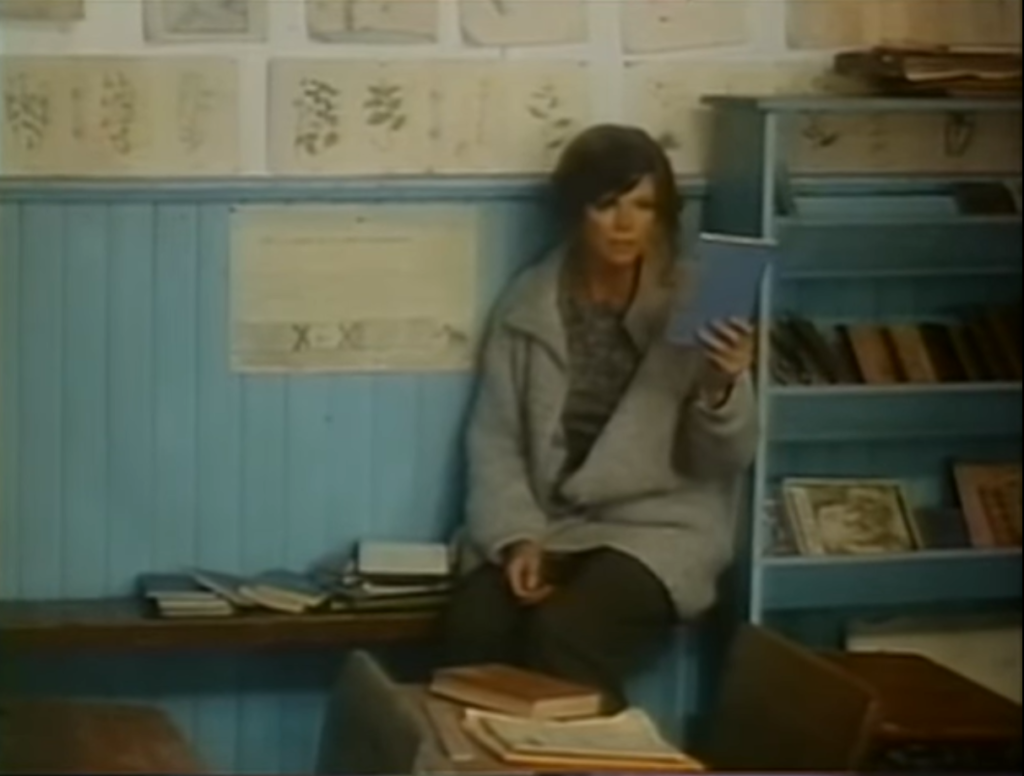“And, in all their learning, not even one word about their own environment?”
|

Synopsis:
During the Depression, Max (Bud Cort) accepts a job teaching at a one-room schoolhouse in Saskatchewan, and struggles with loneliness and frustration.
|
|
Genres, Themes, Actors, and Directors:
- Bud Cort Films
- Canadian Films
- Character Arc
- Depression Era
- Samantha Eggar Films
- Teachers
Response to Peary’s Review:
As Peary notes, this “agreeable, unpretentious” Canadian sleeper “achieves realism by not allowing there to be a solution to any of the problems Cort encounters.” It’s difficult watching Max struggle for acceptance from the town’s impoverished citizens while simultaneously dealing with the bitterly cold prairie winter, unruly students, and lack of pay.

But Cort — always an outsider! — brings an inimitable sense of humor and spirit to his role, and makes the film ultimately about Max’s personal growth and maturation more than anything else.
Redeeming Qualities:
- Bud Cort in yet another “outsider” role

- Samantha Eggar as the desperately lonely housewife who Max develops a crush on

Must See?
No, but it will be of interest to both fans of Bud Cort and those who enjoy films about teachers.
Links:
|
One thought on “Why Shoot the Teacher (1977)”
Not a must, but an interesting slice-of-life depiction of a very specific time and place.
First viewing.
For those who do not live in a desolate environment like the one depicted in this film, ‘WSTT’ is the kind of movie you should watch to remind yourself of the things you have and to stop complaining. Though the film may not completely come together as a narrative, it nevertheless, in its episodic way, successfully captures the stark reality of its focus.
Cort makes a long journey to teach in a godforsaken spot mired in tough times and populated with proud people (usually) on frayed nerves. It’s bleak, naturally, but the people of the town (if one can call it that) get on as best they can. Surprisingly, Cort’s students do not, overall, cause him major problems. (Most of them seem hungry enough for knowledge and advancement.) But the area is poor – not only in terms of wealth but also mind and spirit. Those Cort lives among seem so beaten down that they don’t even have the energy for political change. Well, some do – and Cort eventually (as the story reaches its conclusion) joins in the fight to bring change to the community.
Director Silvio Narizzano (‘Georgy Girl’, ‘Loot’, ‘Die! Die! My Darling!’) once again shows he’s adept at breathing believable life into messy settings. One might wish that ‘WSTT’ were a bit longer – and that more progress might be thrown into the situation we witness. But, on the other hand, the development of such a wish would probably work against the truth of the status quo. It’s meant to be enough for us to finally know that Cort is ultimately not undone by his experiences and that he’s willing to continue forward, having found a cause.